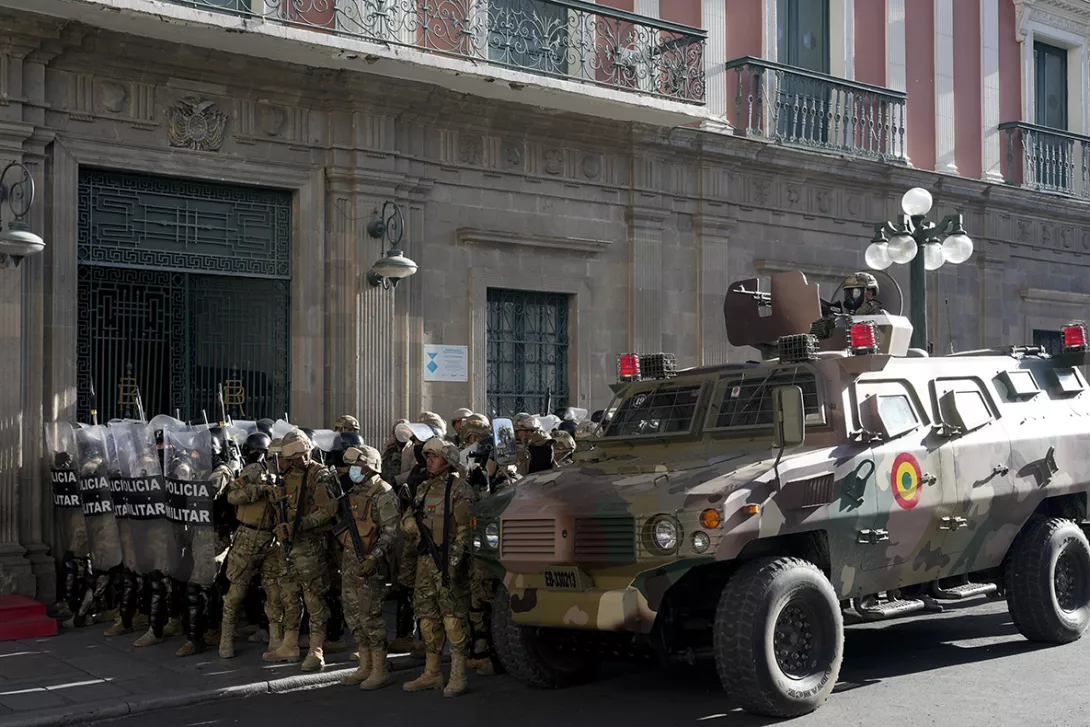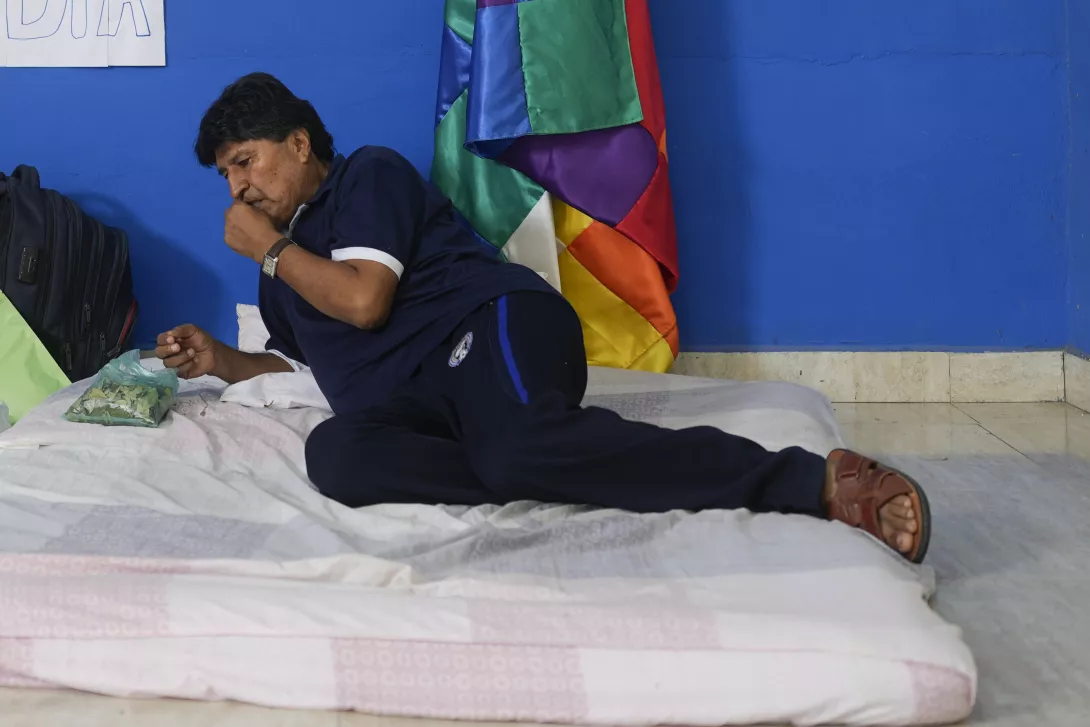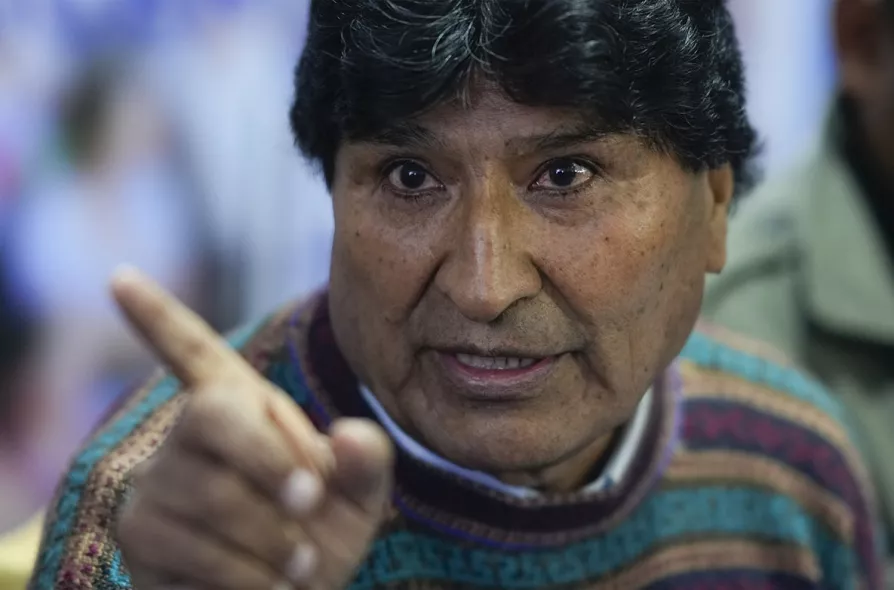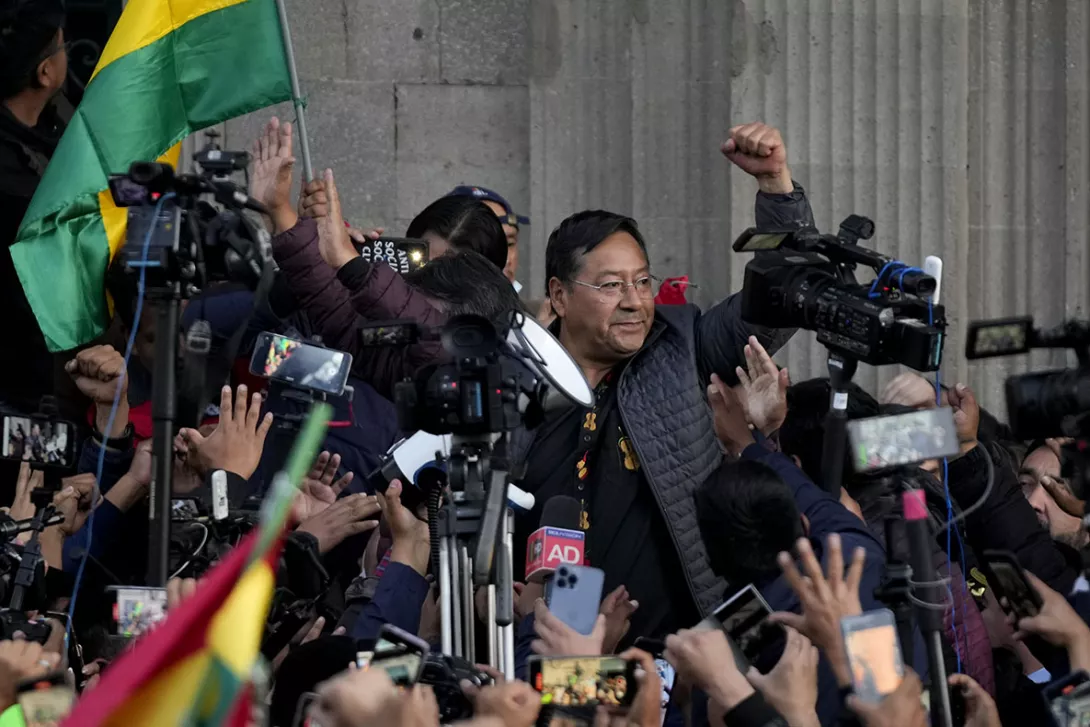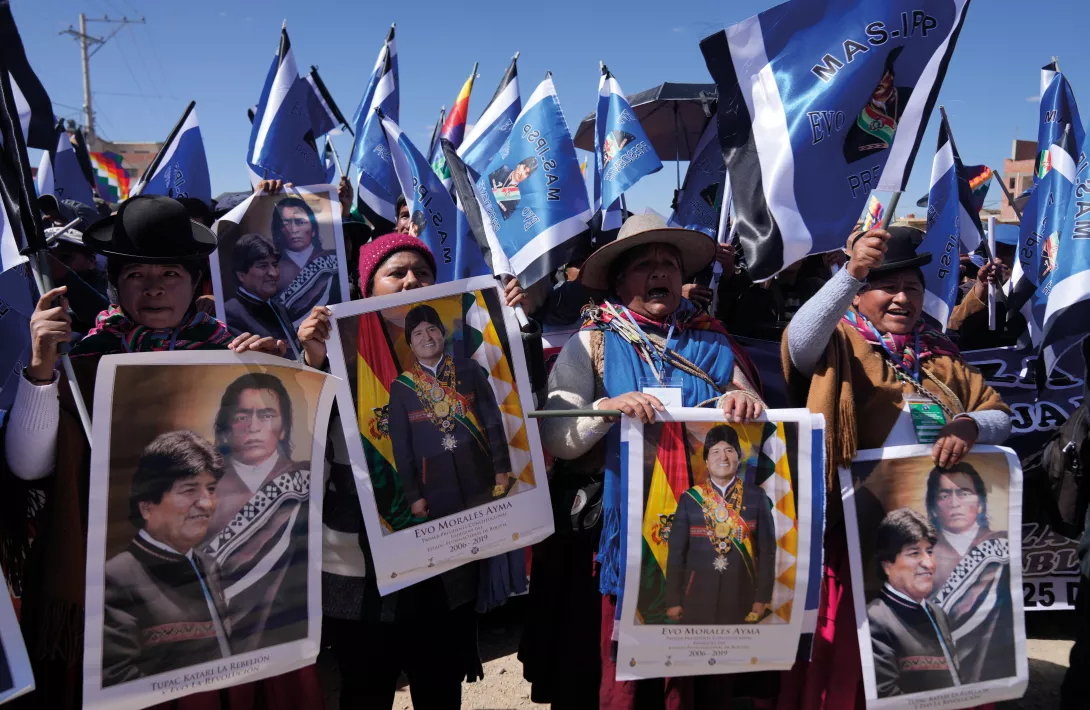
THE stand-off between Bolivia’s president Luis “Lucho” Arce and the former president Evo Morales doubtless undermines the Latin American left, yet its real contours are not widely reported.
Some facts on the coup at the end of June, alongside attempts by the executive to bar Morales from the 2025 presidential race, reveal a common theme: the need felt by 20th-century elites and many non-indigenous individuals to destroy Morales politically.
On July 10 around midday, grassroots movement leaders from across Bolivia were attacked in Plaza Abaroa in La Paz by persons who looked like paramilitaries in a tightly organised block, armed with small explosive devices called “petardos” that are meant to be fired toward the sky.
They fired them directly at the campesino farmers from the countryside and the urban poor who had arrived to support Morales at a meeting of the Supreme Electoral Court (TSE).

